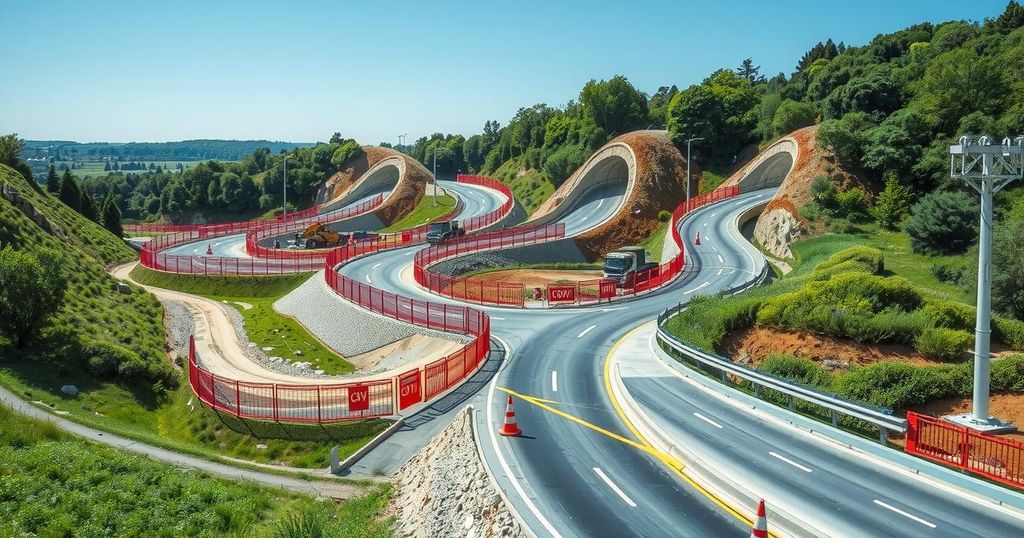The World Bank has approved a $156 million project to upgrade Guyana’s road infrastructure. The initiative focuses on improving transport networks, enhancing resilience to natural hazards, and ensuring road safety. This project aims to address significant road connectivity issues, particularly in coastal areas vulnerable to extreme weather. Additionally, it will facilitate better access to essential services and promote economic growth in the region.
The World Bank has sanctioned a $156 million project aimed at enhancing the road infrastructure in Guyana. This Integrated Transport Corridors Project is anticipated to significantly improve road connectivity, focusing on resilience against natural hazards and ensuring safer mobility across various regions. The initiative comes in response to the growing concerns over road safety in Guyana, where the mortality rate stands at 15 deaths per 100,000 population.
Challenges abound within Guyana’s road infrastructure, particularly in the coastal areas, where roads face extreme weather threats. Notably, over 60% of the road network comprises smaller, low-lying roads, susceptible to rising sea levels and increased rainfall. The damages incurred during the 2021 flooding exceeded $100 million, impacting the agriculture and transport sectors significantly.
The project will prioritize upgrading key road corridors, focusing on resilience, safety, and inclusivity. Key interventions will include enhancing drainage systems, stabilizing slopes, and raising embankments, all vital for safeguarding transport links essential for agriculture and essential services. Efforts will also encompass safety assessments and the establishment of crash barriers and dedicated lanes for pedestrians and cyclists.
Diletta Doretti, the World Bank Group Resident Representative for Guyana, emphasized the need for improved infrastructure as the nation experiences rapid economic expansion alongside increasing natural hazards. Enhancing road safety and resilience through this project aims to meet the growing demands placed on Guyana’s infrastructure driven by its burgeoning oil revenues.
According to the World Bank, Guyana ranks poorly in infrastructure development, sitting at 134 out of 141 in the 2019 Global Competitiveness Index. Approximately 7,970 km of road spans the country, with limited connectivity hindering access to markets and essential services. The project aims to foster economic connectivity between Guyana, Suriname, and Brazil through infrastructural advancements including the upcoming construction of new bridges, which are seen as critical to enhancing trade and cooperation in the region.
In summary, the World Bank’s approval of the $156 million Integrated Transport Corridors Project stands to significantly address the challenges faced by Guyana’s road infrastructure. This initiative will not only enhance road safety and resilience to natural hazards but also improve connectivity across regions. By fostering economic growth through better infrastructure, the project is poised to facilitate broader access to services and encourage sustainable development in the country.
Original Source: www.stabroeknews.com




